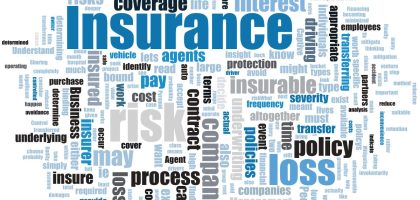Homepage » Pension insurance
Pension Insurance
You are earning today and can easily fulfill the needs of yourself and your family. But soon you will be retired, and your needs will also increase with time. How are you going to manage that after your retirement? Savings, right?
But what type of savings?
We would suggest insurance—pension insurance.
Pension insurance will be your post-retirement income. With a pension plan, you can systematically save money over the years so that you can enjoy a steady income after retirement. The pension plan will allow you to be financially independent so that you can deal with inflation.
After all, timely planning is the way to retire on your terms.
Types of Pension insurance

In a deferred pension scheme, you can accumulate a principal through regular premium or single premium payments as per the policy. After the completion of the policy tenure, the pension is given to the insured.

In the immediate annuity scheme, the pension is offered immediately. The policyholder will have to pay a lump-sum amount, and the pension will be provided instantly according to the total amount paid by the policyholder.

Group pension plans are offered by employers to their employees as a part of their employee benefits package. These plans are designed to provide retirement benefits to a group of individuals within an organization.

In the aforementioned plan, the retirement income isn’t guaranteed, but the contribution is. Within this plan, both you and your employer can contribute. The contributions that you will make will be matched by your employer.

In this particular plan, the pension amount is paid to the annuitant until death. If the option “with the spouse” is chosen, then the pension amount will be transferred to the policyholder’s spouse after the policyholder’s death.

The pension fund is a pension scheme that remains in action for a long period of time. This particular plan offers a better return on maturity and is regulated by the government under the PFRDA.

Under the Whole Life ULIPs pension plan, the money stays invested for the entire life of the insured; after retirement, they can make partial withdrawals to get tax-free income. Withdrawals are allowed whenever needed.

In a guaranteed period annuity plan, the annuity is offered to the policyholder for a fixed period like 5/10/15/20 years, regardless of whether or not the insurer survives that duration.

The Plan ensures that you pay a specific amount from your retirement income for life. It is decided on the basis of the pension amount, which is formulated by taking into account your income as well as the number of years you have served with the employer.

The cover pension plan has a life cover component. After a policyholder’s death, the policy’s beneficiary pays the total amount. The amount is not high, since a maximum part of the premium is paid towards growing the principal rather than covering the life risk.
Choosing The Best Pension Insurance Plan
While choosing the right pension insurance for yourself, do consider the following points:
- Inflation-adjusted Returns : To determine the best pension plan, you can see if the plan offers inflation-adjusted returns or not. Means the pension fund you choose should provide returns that aren’t affected by inflation after retirement.
- Guarantee Pension For the Spouse : Everyone wishes to live a happy and financially independent retirement life. It is something that you share with a spouse, and you should consider this while selecting a pension plan so that after your untimely demise, the pension is given to your spouse.
- Bonus/Other Benefits : It is advised to assess the plan’s offers and the additional benefits. There are some pension plans that offer a loyalty bonus over time. This will also help you hoard a considerable sum in your retirement fund.
- Guaranteed Income : It doesn’t matter, how much you save throughout your working life, there is always a risk that you will run out of money someday. It is therefore important that you arrange a guaranteed income for life.
Key Features of Pension Insurance
- Steady Flow of Income : Based on how you invest in pension insurance, you will get a fixed income after retirement. So, when you retire, you will be financially self-sufficient.
- Vesting Age : The age at which a pension plan holder begins to receive a monthly pension is known as the vesting age. The majority of pension plans in India have a vesting age of 40 to 50 years. You are free to choose the age between the minimum and maximum limits for when you start earning a monthly pension.
- Surrender Value : It is recommended to surrender a pension plan before the due date, or else you will waive all benefits. You will still get the surrender value of the plan if you have decided to surrender for whatever reason.
- Accumulation Period : The investor can pay the premium as a lump-sum investment or in installments with retirement plans in India. Over time, the wealth would grow in tandem, resulting in a sizable sum.
- Payment Period : It is when you start receiving your pension post-retirement. This means if you are receiving the pension between the ages of 60 and 80, the payout period will be 20 years. Most of the pension plans in India have a distinct payment system. and accumulation period.
Advantages of Pension Plan
- Guaranteed Vesting Benefit : With retirement plans, you will get a fixed/guaranteed income to help you with your retirement.
- Death Benefit : Pension plans also offer death benefits for the financial security of your loved ones in your absence. The policyholder will get the sum assured in case of your untimely demise.
- Flexible-Premium Payment Terms : With a pension plan, you also have the flexibility to select a payment term. You can select the premium payment term based on your financial goals.
- Customize Retirement Plan : You can also customize your retirement plans to help you and your loved ones receive additional protection
- Tax Benefits : Pension plans also qualify for a tax deduction under Section 80CCC of the Income Tax Act, 1961. You can avail of a tax deduction of up to Rs. 1.5 lakh for the purchase or payment made towards the renewal of an existing policy.
Reasons To Buy Pension Insurance in 2025
- You Won’t Be Able to Work Always : You can’t work until the last day of your life. Because of aging and poor health, you have to stop working at some point in your life. But, having a regular source of income is a virtue.
- To Save For Medical Emergencies : The older you get, the more likely you are to develop health issues. Moreover, aging affects not only your health but also your pocket. After retirement, medical expenses are the most frequently occurring expenses.
- To Stay Finally Independent : By being financially independent, you will not become a burden to your children post-retirement. This will also give you and your family a sense of satisfaction.
- You Can Help Your Family : One benefit of retiring gracefully with a pension plan is that you are still able to help out your family whenever they need you.
Top 10 Companies in Pension Plans
- LIC’s New Jeevan Shanti Plan : The LIC Jeevan Shanti Insurance Plan is a non-participatory, non-linked, single premium plan that gives benefits in the form of returns through deferred annuity options.
- HDFC Life Click 2 Retire Plan : The HDFC Life Click 2 Retire Insurance Plan is a unit-linked online insurance that offers market based-returns so that you can meet your post-retirement needs.
- SBI Life Saral Retirement Saver : The aforementioned is a participating, individual, non-linked, savings pension product. The SBI Life Saral Retirement Saver will help the insurer create an income source post-retirement.
- ICICI Pru Easy Retirement Plan : The ICICI Pru Easy Retirement helps you provide a regular source of income through investment opportunities in stocks.
- Max Life Guaranteed Lifetime Income Plan : This particular plan is a traditional pension plan that will help the policyholder create a principal toward a regular income post-retirement.
- Kotak Premier Pension Plan : This plan is available online and is a standard pension plan with various options for individuals looking to secure their retirement.
- Bajaj Allianz Lifelong Goal : It is a unit-linked, whole-life insurance policy that helps in creating a savings corpus and earning income till the age of 99
- ABSLI Empower Pension Plan : It is the Aditya Birla Sun Life Empower Pension, it is unit-linked and it is a non-participating pension plan.
- TATA AIA Life Insurance Guaranteed Monthly Income Plan : This is the guaranteed monthly income plan offered by TATA AIA and is a non-participating, non-linked, individual life insurance savings option.
- IndiaFirst Life Guaranteed Annuity Plan : This is a deferred Life Annuity plan under which the policyholder can pay a single premium and receive lifelong benefits. This plan gives you 12 different annuity options to choose from as per your needs.
If you are the sole earner in your family, you have certain debt obligations to fulfill, or your kid’s education demands heavy investment, the pension amount should be more than all your potential expenses combined. Simply put, if you see financial security as a crucial part of your future, you should start your retirement planning now and invest in a pension plan. Now you know what pension means and how it functions. It ensures financial security in your retirement years, helping you live a happy and fulfilling retirement life.
It’s time to get pension insurance.
Leading Life Insurance Companies
Latest Blogs
Introduction Do you think car insurance renewal is just another formality that you should follow every year? Actually, it’s...
Introduction Regardless of its size, every business faces certain risks. There could be property damage, legal claims to employee-related...
Introduction Life is so unpredictable, you can never know when a sudden illness, an accident or even a natural...
Do you think car insurance renewal is just another formality that you should follow every year? Actually, it’s your...
Introduction The decision to buy insurance is often delayed. This is not because people don’t see the need for it...
Even after being a highly important financial tool, there is still a lot of confusion, assumptions, outdated advice and...
As a car owner in India, it’s a must to get insurance for it. But you don’t have to...
Introduction Medical expenses never warn before hitting and when more than one member of a family is affected, the...



















